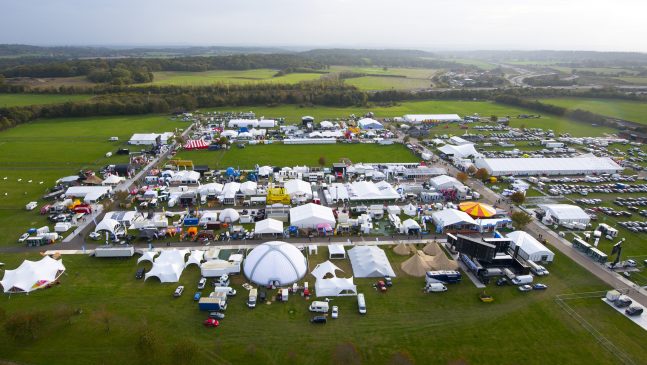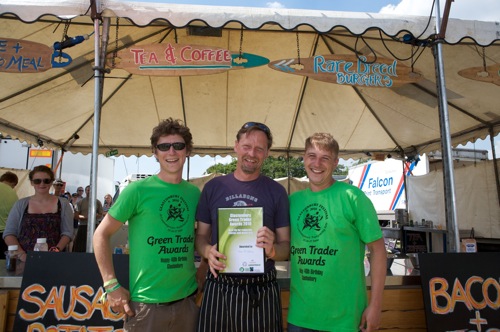The Showman’s Show: Audit leads to 50% reduction in diesel use.
The Showman’s Show is the only outdoor event services exhibition in the UK. It has a wide variety of exhibitors and offers them power supplies for their stands (ranging from 13 amp to 125 amp 3 phase). The organisers have to be prepared for all kinds of power demands, at any point during the event and at any location on the showground and, until 2011, they hired large sets of diesel generators to ensure these demands could be met.
In 2012, in support of the Powerful Thinking campaign, the organisers of the Showman’s Show decided to review the energy supply and consumption of the event and look at the possibility of alternative power supplies to diesel generators.
The first step was to simply monitor the power usage. At the 2012 event, the Show’s electrical contractor monitored the use of all the generator sets throughout the build up to the show and during the event itself. They found that the event was overestimating the size of the generators they would need and could afford to reduce the size of the sets while still meeting demand from the events services areas and exhibitors.
A key observation was the energy consumption of the crew catering facility: the catering area is active for two and half weeks over the build, through the show and during the break down. In the past, the catering tent was supplied with its own designated generator to power the cooking facilities, lighting and run heaters (bearing in mind the event is held in October). Using a more dynamic approach to supplying energy, the catering tent was moved onto the small mains supply — available from the main show ground — during the event build and break down when demand on this supply was low. Over the two days of the event itself, when there was more demand on the mains supply from the camping area and welfare units, the catering tent was moved onto a combined set that was already powering the main exhibition hall. When the event was over and the caravans and welfare units had gone, the catering tent was moved back onto the mains supply.
This simple review of generator sizes and proactive approach to the power supply for the crew catering tent resulted in hiring one less generator and significantly helping to reduce diesel consumption — by over 50%.
In 2015 the Showman’s Show began working with the Electrical Contractor that also supports the venue on the site where the Show is held. They were able to improve the existing electrical infrastructure, reducing energy demand onsite meaning that the crew catering facility, campsite and site office could run from a mains power supply all through the build, the event itself and the break down, rather than switching to generators during the event as done in 2014. They also installed a further permanent floodlight which meant one less lighting tower needed to be shipped in and run.
The other action they took was to simply switch off generators if they weren’t being used: previously generators have been left on during the show build to allow exhibitors to work late at night or early in the morning. The contractors simply noted when work had stopped and then turned generators off so as they were not running through the night unnecessarily. This probably made the biggest impact helping to save over 200 litres of fuel from the year before.
These small measures producing such positive results have encouraged the organisers to regularly review the supply and to look for ways to further reduce their energy consumption.
Thanks to the Showman’s Show for providing the information for this case study.


